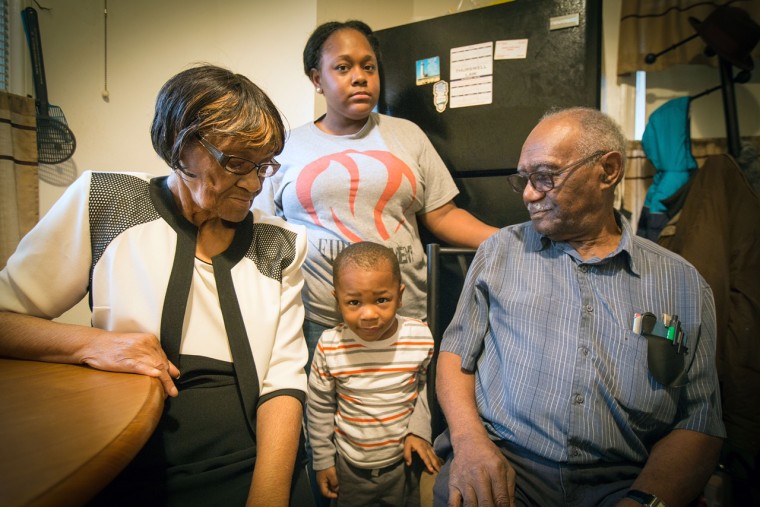Deep down, the Brown family knew the water that had flowed through the pipes in their home in Flint, Michigan — the water that 3-year-old Dana had been drinking for months before anyone was warned — probably contained toxic lead.
This week, they got test results that confirmed their fears.
Water Defense, the anti-fracking and safe-water activist group headed by actor Mark Ruffalo, collected samples from Oscar and Elizabeth Brown's home last weekend and brought them to an independent lab in Cincinnati for analysis.
But a sample of the water from the bathtub, which is unfiltered, contained 16 parts per billion, higher than the threshold of 15 ppb that federal regulators say is the point at which a water system must take action to protect public health.
RELATED: Hillary Clinton: There are too many Flints
"I'm over it. I really just want to leave," said Denettra Brown, who is Oscar and Elizabeth's great-granddaughter and lives in the house with her son, Dana, who is suffering from unexplained health problems.
"I'm tired of crying, I'm tired of my head hurting, I'm over it...Something needs to be done."
The amount of lead in the tub water exceeded the federal limit even though the city is no longer using the water from the Flint River that corroded pipes and leached lead into the system.
Flint switched back to using water from Detroit in October, and has been adding phosphates to its water since Dec. 9 to build up a protective layer in the decayed pipes and seal in any lead, but it's unclear how long it will take for that to be fully effective.
In the meantime, some pipes are depositing more lead in the water than the filters are rated to handle, officials have said. Pregnant women and children are being told to only drink bottled water unless their home has been tested and declared safe.
The results from Water Defense's tests in the Brown house don't tell the family how much lead might have been in the water at the peak of the crisis — before the switch away from river water and before the phosphates were added.
RELATED: Michigan Democratic Party urges Gov. Rick Snyder to resign over Flint crisis
"If we're finding concerning and dangerous levels now, God knows what the lead levels really were before," said Scott Smith, chief technology officer for Water Defense, who collected the samples from the Brown home. "And all of that lead is in human bodies."
Dana began having health problems more than a year ago: seizures, which can be a symptom of lead-poisoning, and rotting teeth, another possible sign. Despite two hospitalizations and an MRI, doctors were unable to diagnose him.
His mother wants Dr. Mona Hanna-Attisha, whose early warnings about elevated lead tests in children were initially brushed off by government officials, to test Dana for lead poisoning. But since it's been weeks since he consumed any lead-tainted water, those results might not tell the family how badly he was exposed or whether his medical issues are related.
Denettra Brown said she doesn't want to bathe Dana in the water, even though health officials say that's safe and that there is no proven link to reports of rashes.
Mostly, she feels trapped in Flint, where 40 percent of families live below the poverty line. Money is coming into the city for bottled water, filters, testing and health care, but Brown says what would really help her is relocation assistance.
"I can't afford to leave and get a car and insurance," she said. "It's like I'm just stuck here in this mess. I have no choice but to stay."
Adam Rivera also contributed to this report.
This article originally appeared on NBCNews.com.
